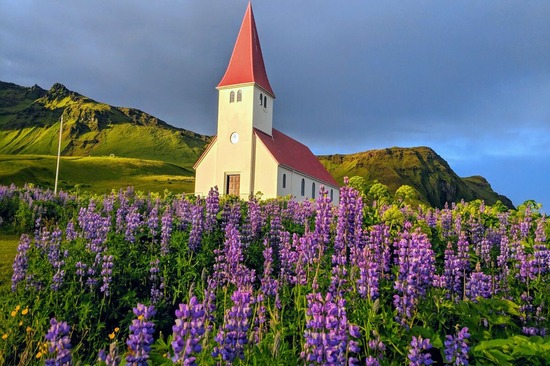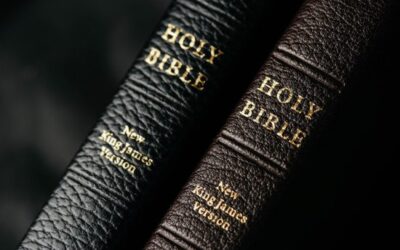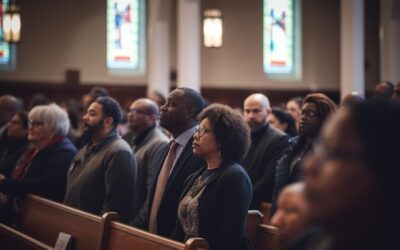Wondering whether your Seventh-day Adventist classmate or coworker keeps the same holidays you do? Perhaps you want to include them in some festivities, but you also want to make sure you respect their beliefs.
Officially speaking, there is no statement or belief within Adventism (or the Bible) that deals with if or how holidays should be celebrated. Most Adventists typically celebrate major holidays, such as Christmas, as well as many local or national holidays.
Though traditions and celebration styles may vary among individual families, cultures, or communities, here’s a look at how Adventists generally regard the following popular holidays.
And keep in mind that while there are no “rules” for how Adventists treat these holidays, we always encourage one another to find special ways to uphold biblical principles and reflect the character of Christ.
What holidays do Adventists celebrate?

Photo by Cristian Escobar on Unsplash
Most Adventists keep major national and patriotic holidays. However, some might choose to avoid certain ones because they feel they conflict with their beliefs, priorities, or opinions.
In some cases, an individual, family, or community might recognize a holiday but prefer to celebrate it differently or omit some common traditional activities.
The Seventh-day Adventist Church intentionally does not have an official statement about celebrating holidays. The Bible also doesn’t include any holiday-specific commandments or advice, mostly due to the fact that most modern holidays didn’t exist back then. Also, most holidays in general don’t present a moral issue.
In other words, it’s not a sin to keep or disregard holidays. Instead, this is a matter of conscience and applying the principles found in the Bible to make individual decisions.
Adventists don’t have any special holidays of our own, and we believe that all are free to decide for themselves which holidays to keep.
When it comes to religious holidays, most Adventists don’t observe Hebrew “holy days,” or religious festivals or feast days like Passover. This is because these occasions were specific to Mosaic law—meaning they were designed for the Israelite nation in the Old Testament (Exodus 12:43–49) and were connected with the system of animal sacrifices (Numbers 9:6–7).
These sacrifices ultimately pointed forward to the sacrifice of Jesus on the cross. Now that Jesus has died and resurrected to fulfill these symbols, Christians are not required to sacrifice animals or keep the feast days.
That doesn’t stop us from enjoying modern holidays and cultural traditions, though.
So what is it that guides Adventists’ approach to holidays?
Even though the Bible doesn’t mention “holidays” like we understand them today, it does give us valuable principles to apply. It outlines behaviors or associations we should avoid (greed, pride, spiritualism, etc.), and explains what attitudes we should strive toward (generosity, joy, thankfulness, etc., Galatians 5:22-23).
In the end, keeping holidays comes down to how they impact:
- Our beliefs
- Our behavior
- Our treatment of others
Our greatest desire is that every holiday we keep would draw us closer to Him and give us opportunities to share His love with others.
But let’s take a look at these common holidays and how Adventists apply the above principle when celebrating them.
Christmas

Photo by S&B Vonlanthen on Unsplash
Like most families, the majority of Adventists celebrate Christmas. In some countries, particularly in North America, it’s seen as a special opportunity to celebrate the birth of Jesus, though in many parts of Africa, it’s more common for Adventists to see Christmas as a time for family. Families may travel back to their ancestral homes or villages and spend time with one another. They might prepare a special meal and gather everyone together.
In larger cities, some Adventist churches decorate their buildings and hold Christmas programs about the birth of Jesus. These are often specifically for children.
Some Adventists—like many Christians in other denominations—choose not to keep mainstream Christmas traditions because they’re concerned about their origins or their focus. Or they may be concerned about the potential greed and selfishness this holiday can inadvertently stir up.
Ultimately, it’s the personal decision of each Adventist church member.
Easter
Adventists’ celebration of Easter depends on what part of the world you’re in. Though Easter is a major holiday in many parts of Africa, Adventists there typically choose not to celebrate Easter because of concerns about it origins and its association with pagan practices. They also choose not to celebrate other Easter-related holidays like Lent, Ash Wednesday, Good Friday, and Palm Sunday.
In North America, however, many Adventists do celebrate because they see it as a time to commemorate Jesus’ resurrection—a central theme in Adventism and Christianity. Though we recognize the importance of Jesus’ resurrection throughout the year, Easter is a great time to remember what Jesus did for us and share that with others. For this reason, Adventist Churches in these areas may have special services on the Sabbath before Easter, emphasizing the resurrection of Jesus.
Birthdays

Photo by Ron Lach
Many Adventists celebrate birthdays as a way to celebrate the life God has given us. But again, these celebrations will depend on where you live. In some countries in Africa, birthdays aren’t emphasized as much, though families may celebrate their children’s birthdays with parties, cake, and birthday songs.
It is possible to find a person or family that has made a personal decision not to celebrate birthdays. It may be because they don’t want the limelight on themselves or their children, or maybe they don’t want to encourage a fixation on presents, junk food, noisy parties, etc. It’s a matter of preference.
But the vast majority take birthdays for what they are—opportunities to celebrate life.
Whether we hold a party or simply spend quality time with our families, birthdays can be a way to thank God for another year of life and look back at how He’s helped us grow throughout the past year.
New Year’s Eve and Day
Adventists typically recognize the New Year, although the amount it is emphasized or celebrated varies from person to person. Many Adventist churches will hold prayer and thanksgiving gatherings on New Year’s Eve, waiting for the clock to strike midnight and asking God to guide them in the upcoming year.
New Year’s Day doesn’t usually involve any special church services, though on the following Sabbath, the pastor may preach a sermon of thanksgiving for the Lord’s care through the previous year.
On New Year’s Day itself, families will often gather together for a special meal. They might also visit parks and spend time relaxing with one another and taking part in community events or activities.
Patriotic holidays

Photo by Elisha Terada on Unsplash
Adventists often participate in patriotic holidays too, taking part in their countries’ respective independence celebrations or memorial occasions.
In many countries in Eastern Africa, people gather in stadiums to hear the president of the country address them. These events might also have parades of the different army units, national prayer, and traditional dances.
Adventists take the time to enjoy these events and days off work. They might spend time as a family, go for leisurely walks, or visit an animal park as a way to relax.
Whatever the occasion, Adventists use these holidays to be with family and reflect on the beauty, joy, and freedoms they find in their respective countries. It can always be a good idea to take time to focus on the positive things in our lives and be thankful for occasions to celebrate.
Commercial/Hallmark holidays
Celebrating commercial holidays, sometimes known as Hallmark holidays, is again a personal choice for Adventists. Throughout the world, perhaps the ones that Adventists celebrate most are Mother’s Day and Father’s Day, taking the time to show how we value these family members in our lives.
When it comes to other holidays like Valentine’s Day and St. Patrick’s Day (in North America), some choose to celebrate them, and others do not. It really comes down to personal preference.
Biblical principles guide Adventists in holiday-keeping
Adventist church members have the freedom to follow their consciences in choosing which holidays to keep or how to keep them.
Because God gives us this freedom of choice, we give that same freedom to others, simply encouraging everyone to maintain a Christ-like attitude while celebrating.
How we celebrate or commemorate anything is a personal decision. And by asking the Holy Spirit for guidance and seeking to honor God through our application of the Bible’s principles (1 Corinthians 10:31), we can approach each holiday with gratefulness and joy.
Even though there are no holidays specific to Adventism, there is one “holy day” that Adventists celebrate every week: the Sabbath that God created.
The Sabbath is a wonderful time to unplug from the obligations of the workweek, worship God, and rest with Him and family and friends.
Related Articles
More Answers
What Is ASI (Adventist-Laymen’s Services and Industries)?
ASI, which stands for Adventist-laymen’s Services and Industries, is a membership-based organization that provides support for Seventh-day Adventist laypeople (Adventist professionals who aren’t pastors).
Sola Scriptura—What Does It Mean, and Why Is It So Important?
Sola scriptura is a term that originated during the Protestant Reformation. It represents the way many Christians view the Bible and its authority.
What is the Concept of “Present Truth” and Why is it Important?
Present truth is the principle that certain biblical truths are relevant to God’s people at specific times in history. God sends the Holy Spirit to reveal truths that help us better understand how to interpret and apply His Word in a present moment.
What Does the Bible Say About Modesty
The Bible teaches that modesty, a form of humility and respect, is a valuable quality in everyone—men, women and children. It has to do with how we present ourselves, which should exemplify our inner relationship with God.
13th Sabbath Offering: What It Is and Why It Matters
On the last Sabbath of every quarter, Adventist churches participate in the 13th Sabbath offering—a special offering that goes to mission fields around the world.
Adventist Movies: Where Faith and Film Meet
The Seventh-day Adventist Church’s mission from the beginning has been to share God’s truth in the Bible. And as times have changed, we’ve explored new ways of doing this—one of those being movies.
Everything You Need to Know About an Adventist Church Potluck
Every so often, usually on a schedule ranging from once a week to once a month to once a quarter, an Adventist church will have “fellowship dinners,” often casually referred to as potlucks.
How to Join the Seventh-day Adventist Church
Whether you heard about the Seventh-day Adventist Church through a traveling evangelist, during your online searches, or through a loved one or relative, you might be considering joining yourself.
How Do Adventists Make Movie and Music Choices?
We have entertainment at our fingertips. With just a tap on our smartphones, we can access all the latest movies, music, YouTube videos, and more.
Do Adventists Celebrate Birthdays?
Yes, most Seventh-day Adventists do celebrate birthdays because we see them as excellent reminders of the life God has blessed us with. And we celebrate them the same way everyone else does—with friends, family, presents, and a special meal.
Are Seventh-day Adventists Christians?
Yes, the Seventh-day Adventist Church is a Protestant Christian denomination formed in 1863. Just like other Christians, we believe that Jesus Christ is our Savior and seek to follow the principles of the Word of God.
Do Seventh-day Adventists Believe in the Secret Rapture
The secret rapture belief asserts that the followers of Jesus will be suddenly and stealthily “raptured” from earth and taken to heaven. Then, any people left on earth will face a period of great difficulty—before Christ’s second coming actually happens.
The Seventh-day Adventist Hymnal
The Seventh-day Adventist Hymnal is a songbook used worldwide by many Adventist congregations during their worship services. Since its publication in 1985, it has helped foster praise to God while reminding church members of our mission and drawing them closer to Jesus.
Do Adventists Have Their Own Bible?
Adventists have some unique beliefs—you might be able to name some of them right now. The seventh-day Sabbath. Death as a sleep. Hell as nonexistence.
Do Adventists Celebrate Communion and Foot Washing?
Like many Christian denominations, Adventists regularly participate in communion, also referred to as the “Lord’s Supper” or the “Last Supper.” They also practice foot washing (John 13:1-20), or the “ordinance of humility,” during the service—which isn’t as common.
How do Adventists choose what to eat?
Every day, parents go through the ritual of getting their kids to eat what is healthy and good while trying to steer them away from what can hinder the growth of their developing bodies. Nutritionists work with their clients to make better food choices.
What Are Seventh-Day Adventist Sermons Like?
In nearly every Seventh-day Adventist Church, the sermon is the focal point of the main service—similar to many Protestant Christian denominations. It is a time of biblical instruction by the pastor, who shares what they’ve been studying in the Bible and preparing over the previous week.
Didn’t find your answer? Ask us!
We understand your concern of having questions but not knowing who to ask—we’ve felt it ourselves. When you’re ready to learn more about Adventists, send us a question! We know a thing or two about Adventists.



















